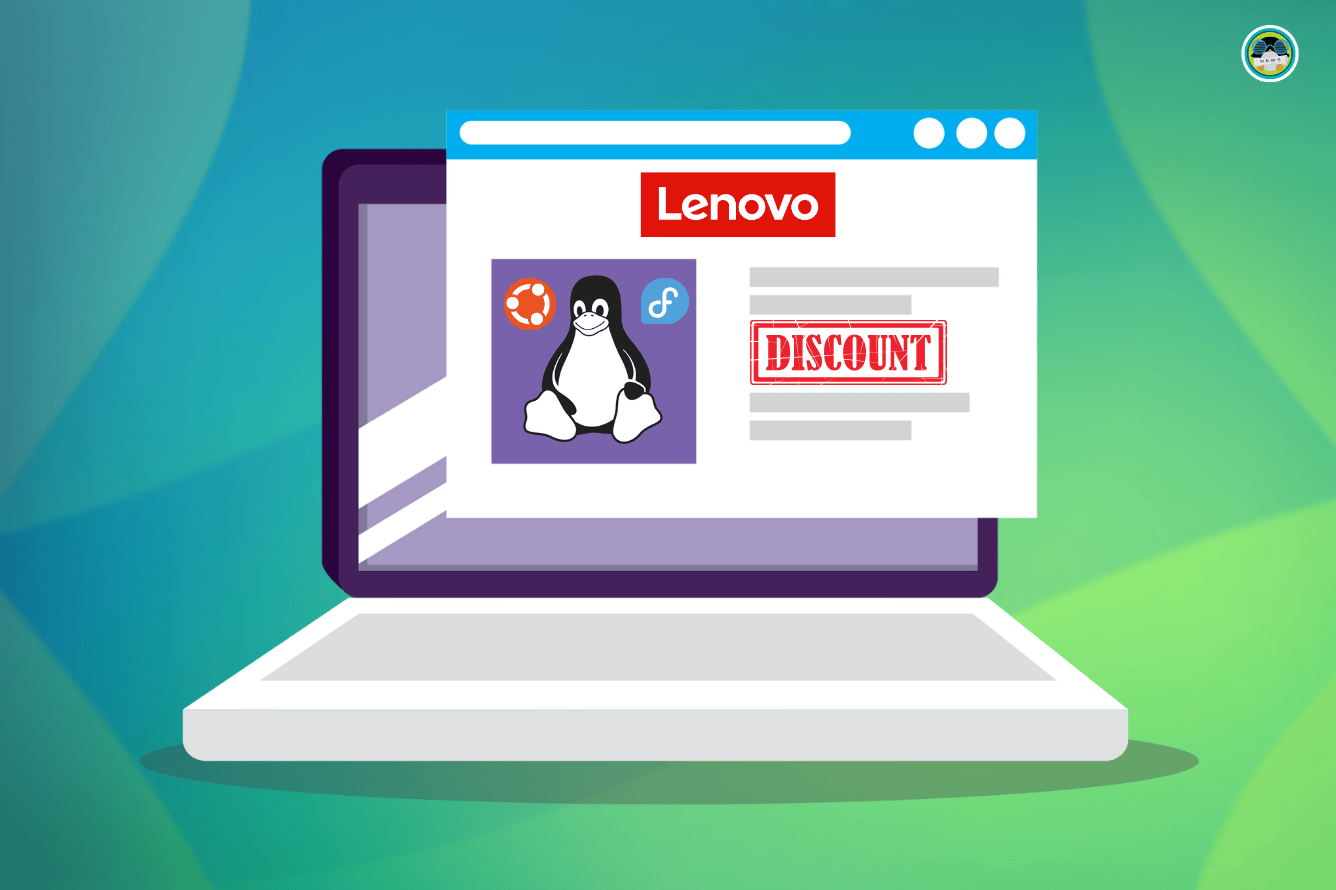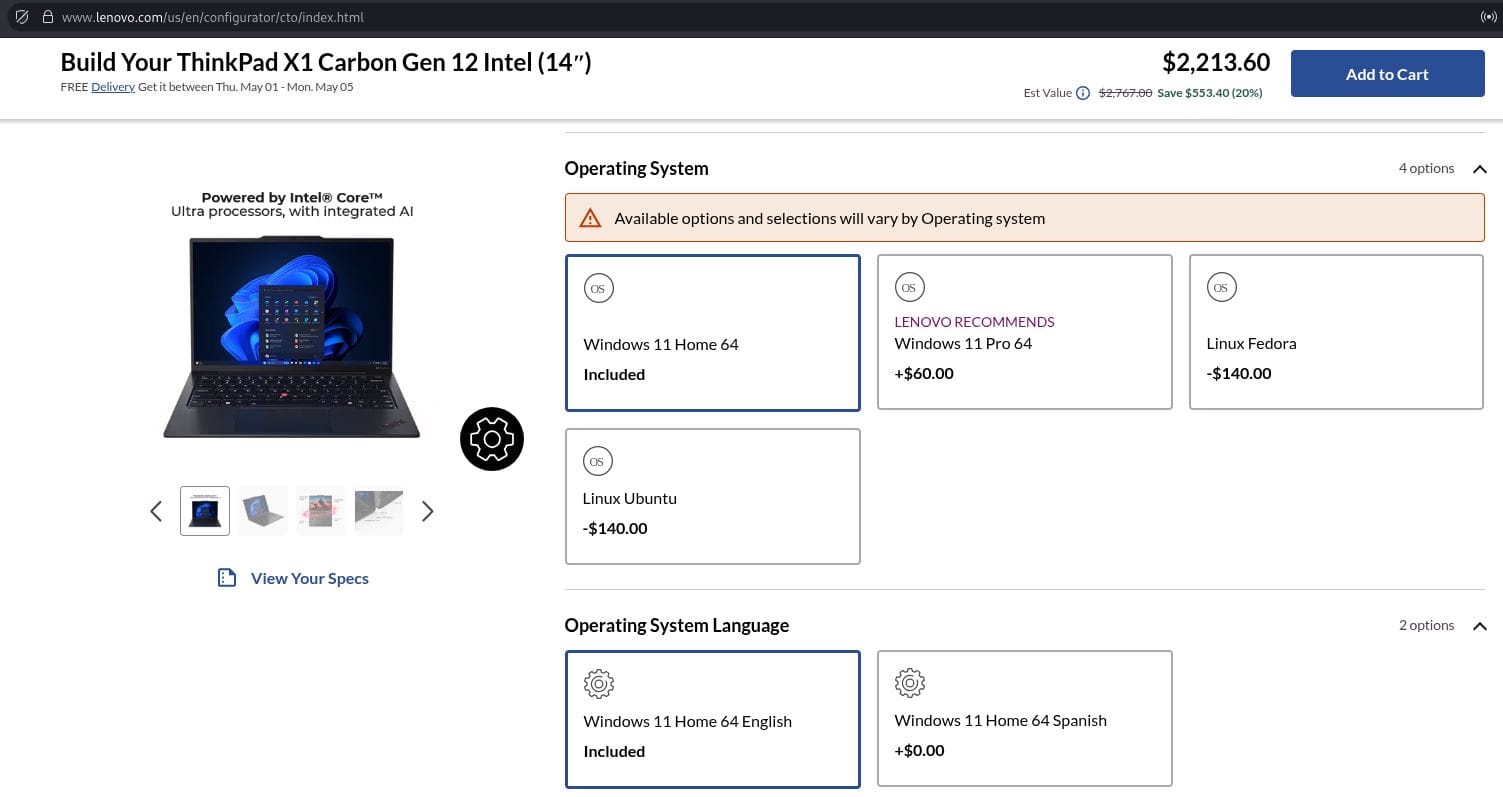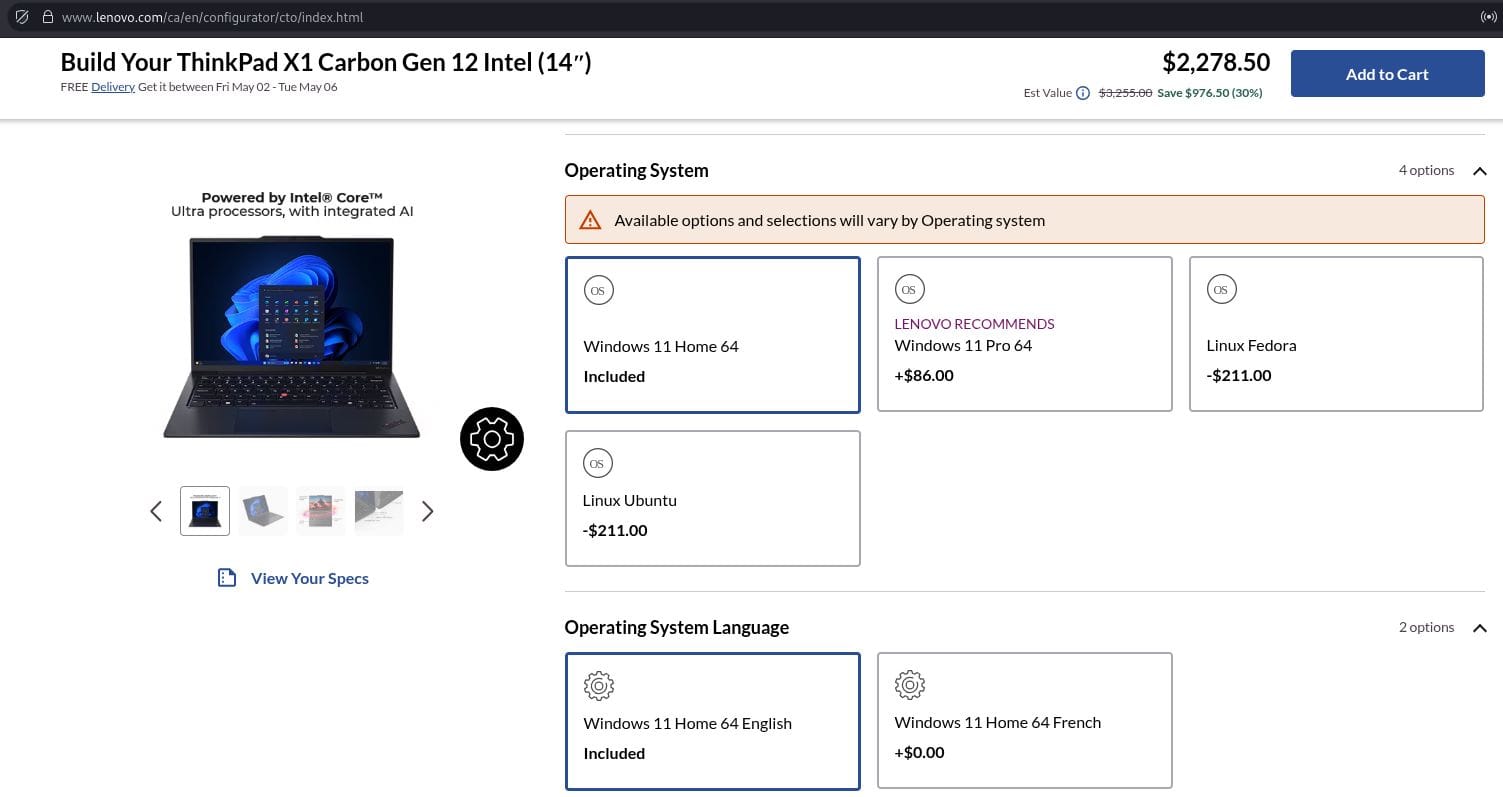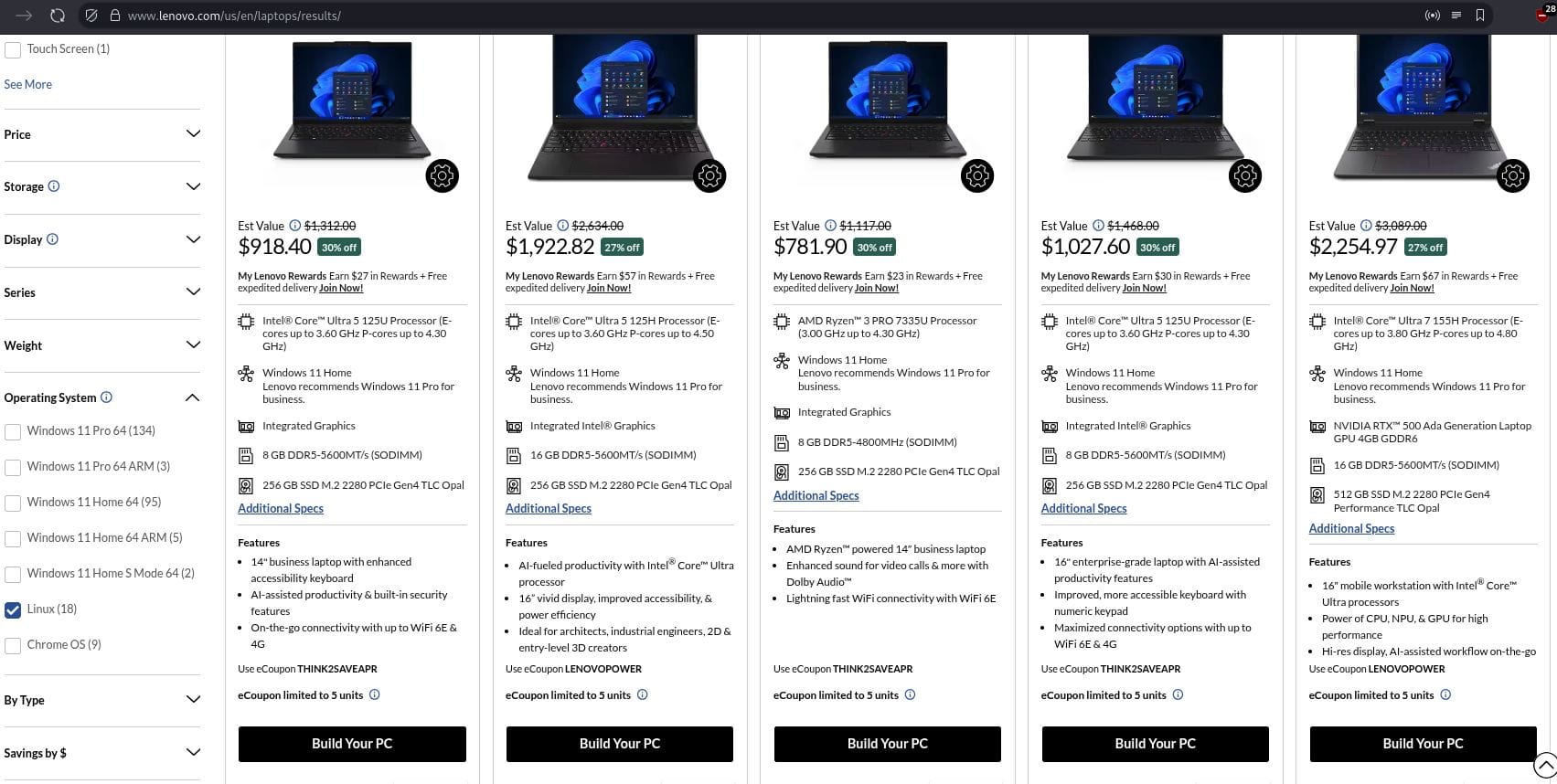- cross-posted to:
- [email protected]
- cross-posted to:
- [email protected]
cross-posted from: https://rss.ponder.cat/post/165736
At least in the U.S. and Canada, that is.
This was brought to my attention thanks to a Reddit post where a user (presumably a resident of Canada), had posted how Lenovo was shipping laptops with Fedora and Ubuntu at a cheaper price compared to their Windows-equipped counterparts.
Others then chimed in, saying that Lenovo has been doing this since at least 2020 and that the big price difference shows how ridiculous Windows’ pricing is.
Cutting the Windows Tax
When I dug in further, I found out that the US and Canadian websites for Lenovo offered U.S. $140 and CAD $211 off on the same ThinkPad X1 Carbon model when choosing any one of the Linux-based alternatives.
US pricing on left, Canadian pricing on right.
Interestingly, while the difference in pricing is noticeable, your mileage may vary if you are looking for such laptops on the official website. Not all models from their laptop lineup, like ThinkPad, Yoga, Legion, LOQ, etc., feature an option to get Linux pre-installed during the checkout process.
Luckily, there is an easy way to filter through the numerous laptops. Just go to the laptops section (U.S.) on the Lenovo website and turn on the “Operating System” filter under the Filter by specs sidebar menu.
Yes, it’s as simple as that. You can do the same for the various official online regional storefronts that Lenovo runs to see whether Linux-based operating systems are being offered on their laptops in your country.
Closing Thoughts
It is good to see that Lenovo is offering Linux in its laptops. In fact, there is another big-name laptop manufacturer, Dell, who also does something similar with its Ubuntu-certified laptops, but both have the same constraint of having limited options for buyers.
Also, as far as I know, Dell doesn’t reduce the pricing if you choose Linux instead of Windows. Correct me if I am wrong in the comments.
Nonetheless, I think these manufacturers could do a better job in marketing these Linux-based alternative operating systems to general consumers, showing them how they can save big when opting for these instead of the pricey and bloated Windows.
Otherwise, we might have to start observing Windows Refund Day again.
💬 Your take on this? Would mainstream users benefit from having Linux pre-installed on their laptops?
From It’s FOSS News via this RSS feed






I would really like to see broad support for TPM-backed FDE, which also requires secure boot to work to implement this properly.
For me, this is essential to have for feature parity with Windows on laptop.
I would love to have secure boot for a customized distro. it only really needs to attest the firmware and the bootloader because they can’t be encrypted, which would serve as a form of tamper protection
other distributions should start having an option for this in the GUI installer, but it might be tricky for the average user
Arch Wiki has a guide on FDE using the TPM and it’s transparent in my everyday usage
some minor issues I see are:
One major obstacle is third party drivers, specifically Nvidia, that forces building and signing your own kernel modules. It can be done, but it’s certainly more complexity than distributing signed binary drivers from the distro. I think Ubuntu has preliminary support for TPM-backed FDE, but only if you aren’t using such drivers. It doesn’t work in combination.
I don’t want to sign my own modules. I want them to shipped signed, so the key isn’t expected to be on my machine. If I were doing kernel development work, I’d have disabled secure boot entirely anyway.
Let’s not have tpm at all instead.
As long as the user owns the TPM and has full control over it, I don’t see a problem. I paid for that hardware. I want to use it. There are already tools that can talk to it. It’s just not fully implemented and integrated into the system in a secure fashion. Indirectly, you kind of point out why there hasn’t been as much motivation to provide these features because they’re associated with the user giving up control, but it doesn’t have to be this way. The hardware can work for me if the support were there.
With the right support, it can even be combined with the password. This lets me enforce that the drive only unlocks in this machine, with this password, and only with the software that I set. That’s certainly more secure than how most distros do FDE today. It covers more use cases and enables a much stronger threat model.